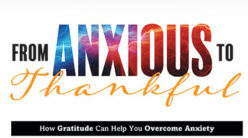It turns out, youth may not be wasted on the young after all. Gen Z (those born between 1997 and 2012) has emerged as an influencer generation, turning Dry January and Sober October into a year-round lifestyle choice known as the sober-curious movement.
The sober curious have drastically changed views around drinking, spiking the interest in and consumption of nonalcoholic offerings to the extent that the industry is scrambling to supply the demand, and the internet is seeing increased traffic searching for “mocktail” recipes. Where club soda used to be the sole option for nondrinkers, now nonalcoholic menus have grown exponentially in recent years.
But the sober-curious movement isn’t simply about temporarily giving up alcohol for a specified period with the intention of returning to it. Being sober curious is about making a decision to intentionally limit or forego alcohol for the purpose of increasing health and wellness. It’s about consciously evaluating your relationship with alcohol to determine if it enhances your life or detracts from it. People who participate in the movement cite a variety of benefits, such as improved sleep, less anxiety, saving money for things that have more value in their life, and increased quality time on weekends because they are not recovering from hangovers.
The distinction is important and likely stems from the value Gen Z places on self-care, work-life balance, and mental health, which is not surprising since they are the first generation to grow up in a completely digital world with smartphones, social media, and constant connectivity, all of which place a strain on health—mental and physical. Many of them also had their futures derailed by the COVID-19 pandemic just as they were about to launch into adulthood. These, along with other stressors, have led young adults to consciously question the paths previous generations have taken and to evaluate their own relationship with alcohol.
Interestingly, the sober-curious movement was gaining traction just as the U.S. Surgeon General released a warning about alcohol. He pointed out that alcohol consumption is the third leading preventable cause of cancer in the United States and recommended that alcoholic beverages be labeled with a warning that alcohol consumption increases the risk of cancer.
The report identifies seven types of cancer linked to alcohol use. In total, alcohol is responsible for nearly 100,000 cancer cases every year, 20,000 of which are fatal. For women, alcohol predominantly causes breast cancer, whereas for men, it results primarily in liver and colorectal cancers.
The 2020–2025 Dietary Guidelines for Americans warns, “Alcohol has been found to increase risk for cancer, and for some types of cancer, the risk increases even at low levels of alcohol consumption (less than one drink in a day).” The World Health Organization goes even further than the U.S. Surgeon General, stating in the Lancet that “when it comes to alcohol consumption, there is no safe amount that does not affect health.”
Every year there are approximately 13,500 alcohol-related traffic deaths, and no one would argue about the danger drunk driving poses to life. Yet there are more alcohol-related cancer deaths, and the American Institute for Cancer Research reports that less than half of Americans understand that there is a causal relationship between alcohol and cancer.
The U.S. General’s 2025 Alcohol and Cancer Risk states, “The International Agency for Research on Cancer (IARC), which is the specialized cancer agency of the World Health Organization (WHO), classifies alcohol as a Group 1 carcinogen—alongside tobacco, asbestos, and formaldehyde, among others—the highest level of classification by IARC for when ‘there is enough evidence to conclude that it can cause cancer in humans.’” And that’s just cancer. The WHO links alcohol to 200 diseases and injury-related health conditions, among them liver diseases, accidents, violence, cardiovascular diseases, suicides, and HIV/AIDS.
Alcohol has been part of society for a long time. Maybe Gen Z has the right idea: Maybe the time has come to question why. From the viewpoint of psychology, there are four main reasons people drink alcohol:
- to cope with difficult emotions
- to conform to society’s expectations
- to enhance pleasurable experiences
- for social reasons.
The first two reasons are considered “negative”; that is, they use alcohol to help deal with difficulties. The problem with this approach is that alcohol does not have the ability to solve anything. At best, it can postpone the negative emotion, but it will also add a host of other problems to the original ones. The last two reasons are considered “positive” because they use alcohol to have or enhance fun. The danger with these is that they can lead to binge drinking as well as other social problems, such as decreased inhibitions, regrettable decisions, violence, and driving accidents.
The reason Gen Z has made such progress in ditching alcohol is that they are examining the “whys” behind their choices. This is the first step in being able to make better choices to meet our needs, rather than just burying or ignoring them.
“We often become dependent on alcohol because it serves a purpose in our lives—and it serves that purpose so well that we become overly reliant on it,” says psychotherapist Jeanette Hu, who quit drinking on Valentine’s Day 2020 and now helps others on the same journey. “Whether it is to relax, connect with others, have a good time, or cope with difficult feelings, alcohol fills a role.”
Hu believes that the best way to remove alcohol from our lives is to replace it with a healthier choice. If you drink alcohol, understanding why is the first step in discovering what you need in your life. For example, using alcohol to wind down from a stressful day is a common reason for drinking. Examining why you are drinking alcohol—because of stress—and consciously choosing a healthier way to deal with stress (such as taking a warm bath, curling up with a good book, taking a walk in nature, spending time with family or friends, doing a project) can yield the same stress-relieving benefits with a better outcome in your physical and mental health.
Arnold Edinborough, renowned writer, editor, and arts advocate, said, “Curiosity is the very basis of education and if you tell me that curiosity killed the cat, I say only the cat died nobly.” Given the multitude of ways alcohol undermines or negatively affects health, Gen Z’s curiosity is clearing a path to a more vibrant life for generations to come by identifying and removing an obstacle to health and happiness.
Céleste Perrino writes from Vermont.






